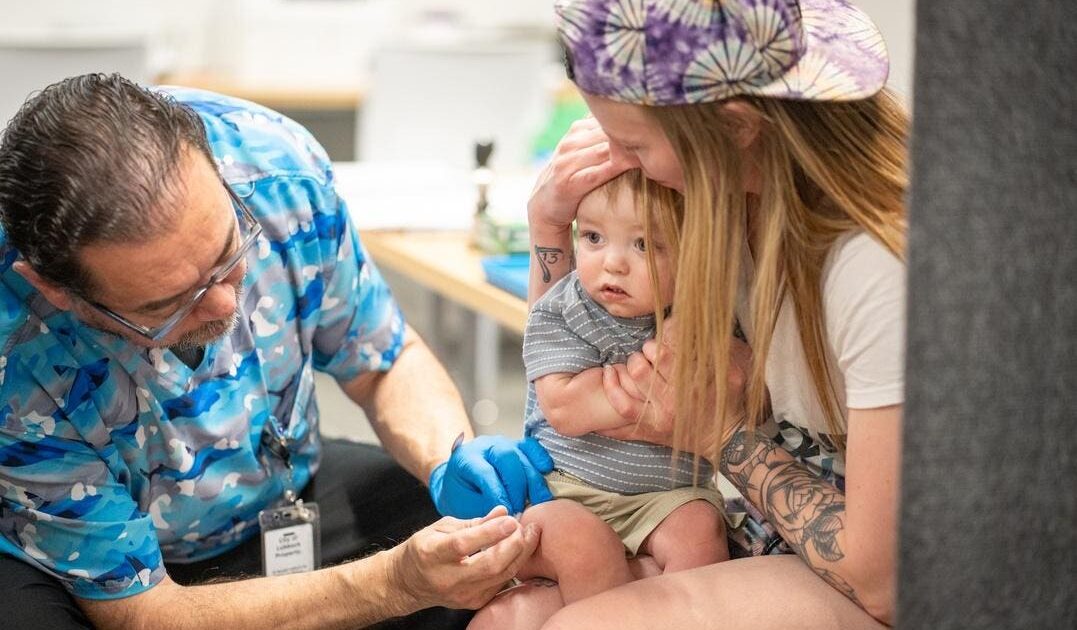Measles Cases At A 33 Year High, According To CDC Report

The CDC recently reported that the number of measles cases in the U.S. has reached a 33 year high, … More
More cases of measles have occurred in the United States in 2025 than in any year since 1991, according to a report released on Wednesday by the Centers for Disease Control and Prevention. Over half of the 1,288 confirmed cases have occurred in Texas, although cases have been reported in 38 states. Roughly 13% of the people diagnosed with measles this year have been hospitalized and three have died. Only 4% of the cases have occurred in people known to be fully vaccinated.
Measles Is A Severe Disease
Measles is fatal in approximately one to three of every 1,000 unvaccinated children. About one out of every 1,000 children will develop swelling of the brain, which can lead to long-term hearing and cognitive problems. Measles also has been associated with long-term defects in the immune system, leading to increased susceptibility to other infections later in life. And, according to the American College of Obstetricians and Gynecologists, measles infection during pregnancy can lead to increased risks of preterm delivery, low birth weight and miscarriage.
Measles Is Vaccine-Preventable
Measles is almost completely vaccine-preventable. In the U.S., the vaccine is administered as part of the measles mumps rubella shot. A two-dose series is recommended, with the first dose ideally being administered in children between the ages of 12 and 15 months and the second dose being administered around 5 years of age. The shots also can be administered to older children and adults who were not previously vaccinated.
This vaccine is incredibly effective, providing about 97% protection in fully vaccinated people. And protection is thought to be long-lasting.
The proof is in the numbers. Before the first measles vaccine was licensed in 1963, an estimated 3-4 million people became infected annually, and 400 to 500 people died. Those numbers dropped precipitously as vaccination rates rose. Indeed, measles was declared eliminated from the U.S. in 2000. Sustained spread no longer occurred.
The Measles Vaccine Is Safe
The vaccine also is very safe, with only minor side effects typically reported. These side effects may include soreness at the injection site, a rash or a fever. In very rare cases, seizures have been reported, but these seizures have not been associated with any long-term complications. And multiple studies have found no link between the MMR vaccine and the development of autism.
Vaccination Rates Are Declining
Despite the safety and efficacy of the vaccine, and the potential severity of the disease, vaccination rates are declining. This drop is fueling the current outbreaks. Because measles is highly contagious, epidemiologists estimate that approximately 95% of a population must be vaccinated to prevent sustained transmission of the virus.
Historically, the measles vaccination rate in the U.S. has been quite high. But the numbers are dropping. Researchers at Johns Hopkins University recently reported that MMR vaccination rates nationally declined over 2.5% in recent years, to 91.26%. And in some locations, the rates are dramatically lower. In Gaines County, the epicenter of the measles outbreak in Texas, only 82% of kindergartners have been fully vaccinated.
Misinformation May Be To Blame
Some recent drops in vaccination rates may be tied to the COVID-19 pandemic. Many people delayed routine preventative medical care. But a larger concern is the effect of widespread misinformation about vaccines. A recent survey conducted by KFF showed that 63% of adults heard or read that the MMR vaccine has been proven to cause autism, 33% heard or read that the MMR vaccine is more dangerous than contracting measles, and 20% heard or read that vitamin A can prevent measles infections. Moreover, between 20% and 25% of respondents thought that these statements were definitely true or probably true.
These statements are false.
The repeated amplification of falsehoods about the MMR vaccine specifically and vaccines generally, almost certainly will further erode public trust. This drop in trust probably will lead to further drops in vaccination rates. And as vaccination rates drop, the number of cases of preventable diseases will increase.
The “record” number of measles cases recently reported by the CDC undoubtedly will be broken.

